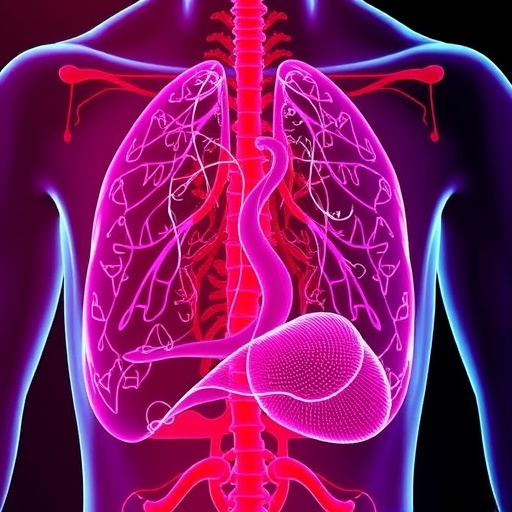The landscape of organ transplantation is witnessing a paradigm shift with the advent of advanced machine perfusion techniques. In recent research, Buster, Friedman, and Parent investigate the implications of these methods not just on the viability of organs, but also on the ethics surrounding data access during preservation. Their work posits critical questions regarding ownership of organ preservation data, which could reshape practices in transplantation and possibly alter the trajectory of medical ethics in this field.
Machine perfusion, a method that enhances the preservation of organs outside the body through regulated temperature and circulation of fluids, is gaining traction in transplantation. Historically, organ preservation relied heavily on cold storage techniques, which often fell short in maintaining cellular function and viability. The novel machine perfusion respiration has changed this narrative by providing a consistent and controlled environment that could better maintain organ integrity during transport. Researchers are beginning to unravel the complexities of how these methods not only extend the functional lifespan of organs but also potentially improve patient outcomes post-transplant.
The study underscores the advances that machine perfusion technology has made in extending the donor organ’s shelf life. As a result, it allows for more flexibility in matching organs with compatible recipients, which is crucial given the ongoing organ shortage crisis. However, while the technical benefits appear manifold, the authors delve deeper into a often-overlooked aspect of this innovation—data governance during the organ preservation process. While enhanced preservation methods promise better outcomes, they also generate a wealth of data, and questions arise about who has the right to access that data.
Data from machine perfusion practices include myriad metrics such as temperature control, perfusion flow rates, and biochemical analyses of the preserved organs. This trove of information could provide invaluable insights into best practices and advance our understanding of organ viability. Yet, determining who owns this data is fraught with ethical concerns. Should it be solely the domain of the transplantation centers that implement these machines, the manufacturers of the technology, or perhaps an emergent stakeholder—the recipients of the organs themselves?
As organ preservation progresses into the digital age, the data-driven decisions that accompany machine perfusion will only grow in importance. Buster and colleagues raise the pertinent question of accountability. In a field that often operates under the constraints of urgency and ethical considerations, understanding the jurisdiction over such critical data will be essential in steering both clinical practice and research.
Moreover, the evolving landscape necessitates that regulations keep pace with innovation. Current frameworks may be insufficient in addressing the complexities that come with machine perfusion data. As ethical discussions enter the fray, it is imperative for stakeholders—clinicians, ethicists, policymakers—to engage in dialogues that could elucidate pathways for responsible data sharing. This will not only ensure better outcomes for patients but also foster transparency in a field built on trust.
The implications extend beyond mere ownership of data; they also include considerations around how information can ultimately impact recipient selection processes. With machine perfusion presenting options for a slightly broader donor pool, having clear guidelines on data access could guide ethical practices around recipient prioritization and the allocation of scarce resources. If transparency over data can be assured, trust in the transplant process could be bolstered, further enhancing public engagement in organ donation programs.
Decisions made based on enhanced data insights could redefine organ transplantation protocols. Thus, as we tread further into this data-centric era, it is vital for the medical community to come to a consensus on what ethical frameworks suit the complexities that arise with machine perfusion technologies. The journey towards consensus will likely involve multi-faceted discussions across disciplines, integrating perspectives from law, ethics, and clinical research.
Buster, Friedman, and Parent’s article forces us to confront the intersection of technology and ethics in organ transplantation. The debate they promote regarding data access and ownership is only set to intensify as machine perfusion becomes the norm in preserving organs. With organ transplants relied upon for life-saving interventions, clarifying these ethical boundaries will be crucial for the future of transplantation medicine.
In the broader context of medical research and its advancements, this study emerges as a pivotal entry point into discussing ethical stewardship of sensitive data. As the field advances, we must also cultivate an ethical infrastructure robust enough to support such innovation without compromising the rights and dignity of all involved parties. Buster and colleagues have undoubtedly set in motion a discourse that will reverberate through the corridors of medical ethics, data privacy, and patient care.
As we move forward, many questions remain unanswered. What governance models can bridge the gap between innovation and ethics? And how can stakeholders ensure that the data is harnessed in ways that primarily benefit patients while also respecting the human element of the organ transplantation process? This research underscores a pressing need to integrate ethical considerations into the development and application of new technologies in healthcare.
In conclusion, the advancements in machine perfusion are not merely technical; they bear profound implications for ethics and the practice of organ transplantation. As this conversation evolves, it will set the stage for the future of organ preservation, focusing on not just the science but also the human stories intertwined with every organ that undergoes the preservation process.
Subject of Research: The ethics of data ownership during machine perfusion and preservation of organs for transplantation.
Article Title: Machine Perfusion and Preservation of Organs for Transplant—Who is Entitled to the Data while the Organ is Being Preserved?
Article References:
Buster, A., Friedman, B. & Parent, B. Machine Perfusion and Preservation of Organs for Transplant—Who is Entitled to the Data while the Organ is Being Preserved?.
Curr Transpl Rep 12, 31 (2025). https://doi.org/10.1007/s40472-025-00488-2
Image Credits: AI Generated
DOI: 10.1007/s40472-025-00488-2
Keywords: organ transplantation, machine perfusion, data ethics, organ preservation, medical ethics.




